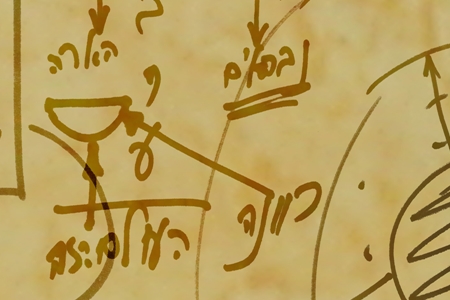The 10 Rules Of Spiritual Work
The Maggid of Mezrich, a great Kabbalist of the previous century, proclaimed: “There are ten rules of spiritual work. Three of these rules can be learned from an infant and seven of them can be learned from a thief.”
The infant:
1. is happy for no reason,
2. does not rest even for a minute,
3. demands what he wants with all his might.
The thief:
1. works at night,
2. attempts to gain this night what has not been gained the previous night,
3. is loyal to his comrades,
4. risks his life to gain even the most insignificant things,
5. does not value that which was stolen, and sells it for pennies,
6. is beaten, but does not turn from his path,
7. sees the advantages of his occupation and does not wish to change it.
He also added: “There is a key to every lock, but if the lock does not give, a courageous thief will break it. The Creator loves a person who breaks his own heart to enter the house of the Creator.”
Exerting to Advance Towards the Creator
When we learn the spiritual levels, only then do we become insignificant in our own eyes, and can then bow before the Creator, sensing that we have no need of anything: not our own spiritual redemption, nor any spiritual ascent, nor eternity, but only the Creator.
During the time of a spiritual decline, it may appear that the Creator is concealing Himself, and it is difficult for us to sustain faith in His existence and His Providence. But if we indeed feel that the Creator conceals Himself, then we are not truly experiencing the concealment of the Creator, but rather a condition in which the Creator expects us to make an effort to advance toward Him.
The Creator is considered to be The Place (HaMakom), precisely because one should enter Him with one’s whole being, so that the Creator should surround one and be one’s dwelling place. (As was already noted, we dwell in an ocean of the Light of the Creator, and we should become aware of this fact.)
Praying to Perceive the Creator
During the time of prayer, we should constantly control where we are directing our attention and efforts: to the reading of the text and to the following of a strict order of the text fragments in a particular prayer book; to the in-depth examination of the meaning of names and of letter combinations; to the distinct pronunciation the words; to the strict following of the mental intentions (kavanot) in a particular prayer book; or to the most important—directing one’s heart towards an attachment with the Creator.
Most important is our intention: a prayer to perceive the Creator! Those who pray acknowledge the existence of the Creator, but those who pray for the ability to perceive the Creator, experience Him!
 “Do You Recognize the 10 Rules of Spiritual Work?” is based on the book, Attaining the Worlds Beyond by Dr. Michael Laitman.
“Do You Recognize the 10 Rules of Spiritual Work?” is based on the book, Attaining the Worlds Beyond by Dr. Michael Laitman.

